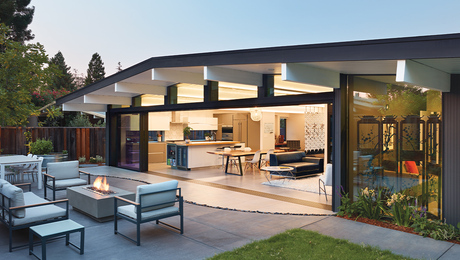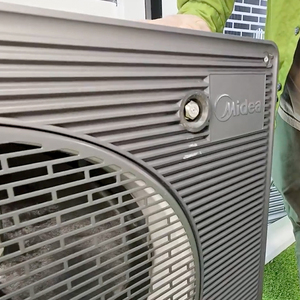Recently installed a Climate Master ground source heat pump, and went with the desuperheater option for preheating the water supply to our electric hot water heater. Now that the money is spent, I’m wondering a couple things:
Is the water preheating really free of additional energy cost? If so, does that not imply some inefficiency in the heating of air for the home? If there is heat that can be captured for the water, why wasn’t it captured for home heat? I can more easily grasp the desuperheater functioning in the cooling season than in the heating season.
Does the use of the desuperheater have any implications for the durability and reliability of the heat pump?
I understand how the heat pump dehumidifies my home in the cooling season, but, absent any oil/gas/wood burning, how does it make the air in here so dry in the heating season?



















Replies
The desuperheater works durring the cooling phase of your GSHP. That is when you are dumping heat into the earth from the condesenser. Part of the heat being dumped goes thru the WH loop of the desuperheater and give you the free hot water.
Durring the winter when you are extracting heat from the earth, the reversing valve has switched and the desuper heater should be off by either a selenoid valve or circulating pump. You don't want it extracting heat from the water heater.
The system is plumbed so that the desup. does not draw from the HW heater. There is another HW heater tank - Not hooked up to power - which receives cold water and which is in a loop with the desup. This tank provides pre warmed water to the powered HW heater.
That would make sense to be the most affective. Plus it increases your hot water capacity. No, that doesn't mean the kids can now simply take longer showers :)
Is your setup done so that the heat pump can provide water preheating during "shoulder" seasons with no call for house heat? It would seem to make sense to be able to do that, so that you can get low-cost hot water all year, and not just when the house needs heat or A/C.
Nope. The system would have to either heat or cool for the desuper to work.
We're on top of one of the highest hills in the county and open windows/french doors are one of the great joys of Spring and Fall here.
When I read your post ... I was thinking along the lines of what Dave said, too. The desuperheater is for use in the cooling mode ... to provide all those hot showers during the summer time ... when you want to take a cool shower ... ;)
If you have enough capacity in a GSHP, you could also use it to preheat your hot water ... not much different than heating the space ... but it isn't 'free' like the A-C side. (I use 'free' loosely).
My sister never would run the AC in her old house until it was miserable out but when they moved to the new home I told her it would be cheaper to run the AC than not because of the free hot water. With 5 active people in the house often taking more than one shower per day, she finally tried it and found out it wasn't a lie.
DW is frugal...Still has her milk money from kindergarden and we're married 30 years. She has gradually come to see the value of dishwashers and A/C however.
Like others have said, best/only profitable use is during the cooling season.
During winter, you can preheat your water and save a few cents on water heating, but you can only preheat say 50 Gal of water a couple of times a day to about 105 F, say 2X (105-55) * 50 gal * 8.3 # * 1 BTU#dF = a savings of a couple of kW-hrs at the most, 20- cents?
The efficiency loss of the system flowing thru an additional exchanger reduces the COP of the heating cycle such that you actually need to pay more to heat your house and heat water in sum, although the water heater energy use is slightly less. .
This sounds like what I'm trying to find out.
The sales pitch was a 50% +/- reduction in waterheating cost in the winter, and hotwater free or nearly so in summer.
But where does the desuper heat come from in winter?
"But where does the desuper heat come from in winter?"
From your house.
In the summer, the ground is the heat sink and the inside air of the house is the heat source. You're just diverting some energy, via a heat exchanger, to the water heater.
In winter, the ground is the heat source and the air inside of the home is the heat sink. You're diverting some of the energy that would have been heating your home and using for domestic hot water.
Jon Blakemore RappahannockINC.com Fredericksburg, VA